Related Research Articles

Kazimierz Kuratowski was a Polish mathematician and logician. He was one of the leading representatives of the Warsaw School of Mathematics. He worked as a professor at the University of Warsaw and at the Mathematical Institute of the Polish Academy of Sciences. Between 1946 and 1953, he served as President of the Polish Mathematical Society.
Proof theory is a major branch of mathematical logic and theoretical computer science within which proofs are treated as formal mathematical objects, facilitating their analysis by mathematical techniques. Proofs are typically presented as inductively-defined data structures such as lists, boxed lists, or trees, which are constructed according to the axioms and rules of inference of a given logical system. Consequently, proof theory is syntactic in nature, in contrast to model theory, which is semantic in nature.
A non-monotonic logic is a formal logic whose conclusion relation is not monotonic. In other words, non-monotonic logics are devised to capture and represent defeasible inferences, i.e., a kind of inference in which reasoners draw tentative conclusions, enabling reasoners to retract their conclusion(s) based on further evidence. Most studied formal logics have a monotonic entailment relation, meaning that adding a formula to a theory never produces a pruning of its set of conclusions. Intuitively, monotonicity indicates that learning a new piece of knowledge cannot reduce the set of what is known. A monotonic logic cannot handle various reasoning tasks such as reasoning by default, abductive reasoning, some important approaches to reasoning about knowledge, and similarly, belief revision.
Default logic is a non-monotonic logic proposed by Raymond Reiter to formalize reasoning with default assumptions.

The Polish Academy of Sciences is a Polish state-sponsored institution of higher learning. Headquartered in Warsaw, it is responsible for spearheading the development of science across the country by a society of distinguished scholars and a network of research institutes. It was established in 1951, during the early period of the Polish People's Republic following World War II.

Andrzej Mostowski was a Polish mathematician. He is perhaps best remembered for the Mostowski collapse lemma.
Fundamenta Mathematicae is a peer-reviewed scientific journal of mathematics with a special focus on the foundations of mathematics, concentrating on set theory, mathematical logic, topology and its interactions with algebra, and dynamical systems.
In mathematics, logic and philosophy of mathematics, something that is impredicative is a self-referencing definition. Roughly speaking, a definition is impredicative if it invokes the set being defined, or another set that contains the thing being defined. There is no generally accepted precise definition of what it means to be predicative or impredicative. Authors have given different but related definitions.
The concept of a stable model, or answer set, is used to define a declarative semantics for logic programs with negation as failure. This is one of several standard approaches to the meaning of negation in logic programming, along with program completion and the well-founded semantics. The stable model semantics is the basis of answer set programming.
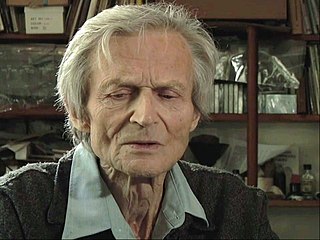
Andrzej Grzegorczyk was a Polish logician, mathematician, philosopher, and ethicist noted for his work in computability, mathematical logic, and the foundations of mathematics.
Vladimir Lifschitz is the Gottesman Family Centennial Professor in Computer Sciences at the University of Texas at Austin. He received a degree in mathematics from the Steklov Institute of Mathematics in Russia in 1971 and emigrated to the United States in 1976. Lifschitz's research interests are in the areas of computational logic and knowledge representation. He is a Fellow of the Association for the Advancement of Artificial Intelligence, the Editor-in-Chief of the ACM Transactions on Computational Logic, and an Editorial Advisor of the journal Theory and Practice of Logic Programming.
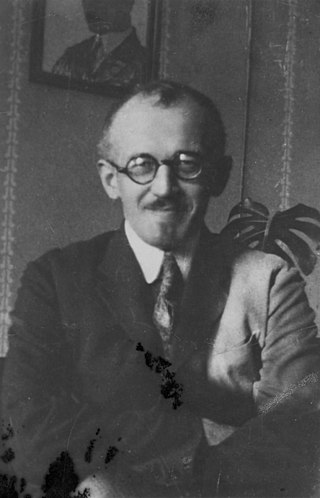
Kazimierz Franciszek Vetulani was a Polish civil engineer, professor at the Lviv Polytechnic, member of the Polish Mathematical Society, author of several dozen papers in the fields of technology and mathematics, as well as in the field of musical scale theory.
Michael Gelfond is a Professor in Computer Sciences at Texas Tech University in the United States. He received a degree in mathematics from the Steklov Institute of Mathematics in Russia in 1974 and emigrated to the United States in 1978. Gelfond's research interests are in the areas of computational logic and knowledge representation. He is a Fellow of the Association for the Advancement of Artificial Intelligence, and an Area Editor of the journal Theory and Practice of Logic Programming.
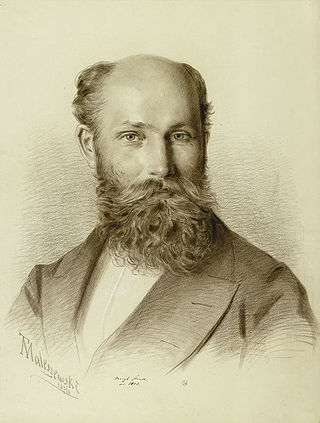
Henryk Struve (1840–1912) was a Polish philosopher. He has been called "perhaps the most remarkable person in logic in Warsaw in the 19th century". Struve taught philosophy at Warsaw University from 1862 to 1903. He wrote works in Polish, German and Russian.

Zygmunt Władysław Vetulani is a Polish mathematician and computer scientist who specializes in language engineering and artificial intelligence, professor of technical sciences and professor at the Adam Mickiewicz University where he is also Head of the Department of Information Linguistics and Artificial Intelligence.

Johann (János) A. Makowsky is a Hungarian-born naturalised Swiss mathematician who works in mathematical logic and the logical foundations of computer science and combinatorics. He studied at ETH Zurich from 1967–73. He was a student in Zürich of Ernst Specker and Hans Läuchli in mathematical logic,, of Beno Eckmann and Volker Strassen (Algorithmics), and in Warsaw of Andrzej Mostowski and Witek Marek, where he spent 1972 as an exchange student. Makowsky held visiting positions at the Banach Center in Warsaw (Poland), Stanford University (USA), Simon Fraser University (Canada), University of Florence (Italy), MIT (USA), Lausanne University and ETH Zurich (Switzerland). He held regular positions at the Free University of Berlin and the Technion – Israel Institute of Technology where he was a full professor.
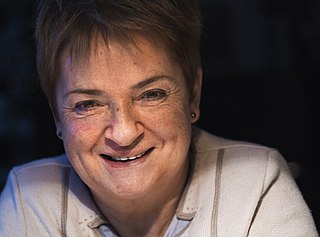
Grażyna Małgorzata Vetulani née Świerczyńska is a Polish philologist and linguist, professor of the humanities, professor at the Adam Mickiewicz University in Poznań and the Nicolaus Copernicus University in Toruń.

Witold Kosiński was a Polish mathematician and computer scientist. He was the lead inventor and main propagator of Ordered Fuzzy Numbers.
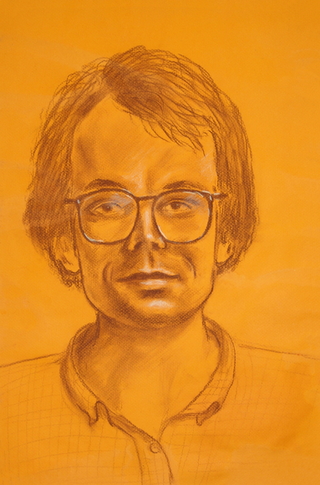
Witold Lipski Jr. was a Polish computer scientist, and an author of two books: Combinatorics for Programmers and (jointly with Wiktor Marek Combinatorial analysis. Lipski, jointly with his PhD student, Tomasz Imieliński, created foundations of the theory of incomplete information in relational databases.
Krzysztof R. Apt is a Polish computer scientist. He defended his PhD in mathematical logic in Warsaw, Poland in 1974. His research interests include program correctness and semantics, use of logic as a programming language, distributed computing, and game theory. Besides his own research, he has been heavily involved in service to the computing community, notably by promoting the use of logic in computer science and by advocating open access to scientific literature.
References
- ↑ W. Marek and M. Srebrny, Gaps in constructible universe, Annals of Mathematical Logic, 6:359–394, 1974.
- ↑ K.R. Apt and W. Marek, Second order arithmetic and related topics, Annals of Mathematical Logic, 6:177–229, 1974
- ↑ W. Marek, On the metamathematics of impredicative set theory. Dissertationes Mathematicae 98, 45 pages, 1973
- ↑ Z. Pawlak, Mathematical foundations of information retrieval. Institute of Computer Sciences, Polish Academy of Sciences, Technical Report 101, 8 pages, 1973
- 1 2 Z. Pawlak, Rough sets. Institute of Computer Science, Polish Academy of Sciences, Technical Report 431, 12 pages, 1981
- ↑ W. Marek and Z. Pawlak On the foundations of information retrieval. Bull. Acad. Pol. Sci. 22:447–452, 1974
- ↑ W. Marek and Z. Pawlak. Rough sets and information systems, Institute of Computer Science, Technical Report 441, Polish Academy of Sciences, 15 pages, 1981
- ↑ M.Denecker, V.W. Marek and M. Truszczynski, Uniform semantic treatment of default and autoepistemic logics. Artificial Intelligence. 143:79–122, 2003
- ↑ V.W. Marek and M. Truszczynski, Stable logic programming – an alternative logic programming paradigm. In: 25 years of Logic Programming Paradigm, pages 375–398, Springer-Verlag, 1999